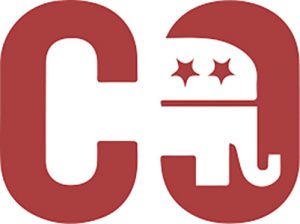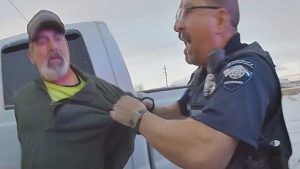By Edi Sheldon
WALSENBURG- Childhood in Walsenburg was relatively easy. You could walk anywhere in town without concern for safety. I attended Hill School to 4th grade and Washington School to 8th grade. My parents’ office was one block from Washington School, and I have fond memories of going to the Klein Hotel restaurant and sitting at the counter to enjoy a deliciously tender hot roast beef sandwich for lunch and running back to the school for afternoon classes.
Occasionally I was allowed to go to the Rexall Drug Store and sit at the soda fountain and have an ice cream soda. There were three drug stores then, but this one was the only one with a soda fountain. On Saturdays I met my friends in front of the Fox Theatre, and with my allowance of 25 cents, I could purchase a movie ticket, a small bag of popcorn and a soft drink. We avidly anticipated the next episode of the Lone Ranger or Sky King. On Sundays we attended Sunday school and church and then went home to gather on the living room floor and listen to The Shadow on the radio.
My uncle and aunt purchased one of the first television sets in town, and Monday and Wednesday evenings my parents, and aunts and uncles gathered at that house to watch the boxing matches or baseball games and gossip or discuss the local events.
Both of my uncles were in the cattle business as was my father, and I grew up on the local range on horseback. We all had good summer times at the regional rodeos competing in barrel racing and cutting horse contests as well as roping and the boys would show off their bull-riding skills.
I belonged to Girl Scouts, Rainbow, school band, and the Journalism Club in High School. Much to my father’s chagrin, I was never asked to be in Honor Society because I was never quite competitive enough. Life seemed relatively idyllic.
Even though there were economic challenges then, they were not as severely evident because the local agricultural economy kept the community going. Ranchers needed groceries, ranching supplies, machinery and vehicles, and they all traded locally. In the 1950’s there were still three car dealers in Walsenburg. Real estate was still a commodity for the purposes of raising livestock. The steel mills were keeping a lot of local laborers employed and happy, as were the few remaining coal mines and the Allen Mine in Trinidad. Tourism supplemented the local retailers, and they also anticipated local shoppers for holidays and especially Christmas. It has been noted that each dollar spent circulates within the community seven times. So the dollars were still circulating at a pretty good pace. The 1960’s were simply a continuation of the 50’s, but when the 70’s hit and the final few coal mines shut down, the CF&I also began to shut down. Those who had held jobs there and commuted had to find other employment. It was about this time that it was evident just how deeply the coal mine owners had scarred the community with their unfair labor practices. Many of the immigrants who had come here with nothing still had nothing. As some of the independent business owners felt the effects of the exodus and closed their doors, many of the part time jobs that had been available were eliminated.
At this time also, the agricultural business suffered the effects of increased feed costs and less return on cattle sent to market. Ranchers were putting their land on the market and also leaving. The population in the county and the city dropped significantly by nearly half, and Main Street was devastated. My parents were proprietors of two other businesses, so when my father sold the ranch and cattle, they still had a good income.
I went to college and got married and moved to another community which was also affected by the struggling economic downturn. Gas prices increased, and it was difficult even to travel, so transporting goods and services into the community caused a serious rise in the cost of those goods and services. Most of the existing gas and service stations closed. The appearance of the City of Walsenburg was that of a community in the throes of death. (to be continued next week)
The Klein Hotel was located on East 6th next to French’s Barber Shop. The site is now occuplied by housing units. The Rexall Drug Store was in the two story red brick building on the corner of 6th and Main, and is currently unoccupied.




